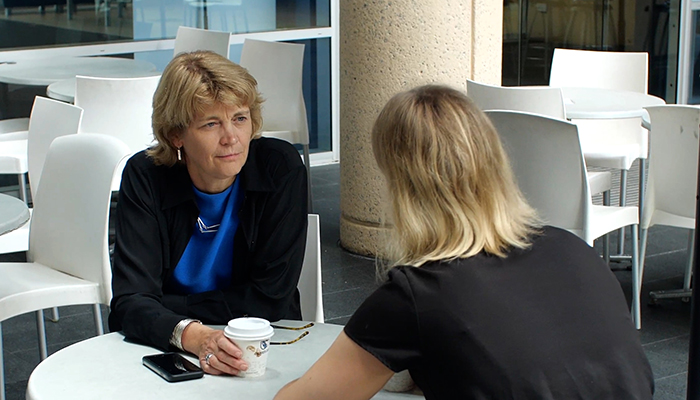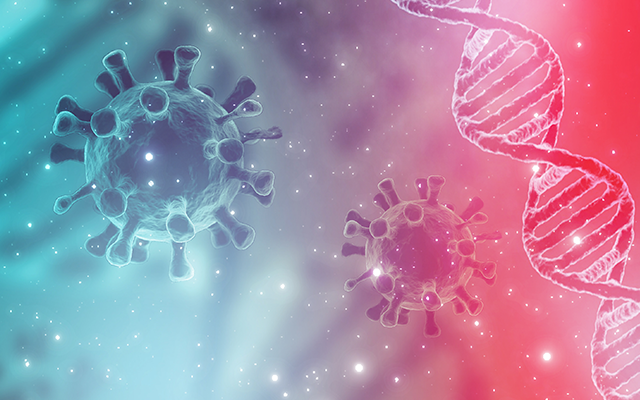Unravelling the COVID-19 mystery
The Covid-19 OzGenetics study is a chance for Australians to contribute to the international scientific fight against COVID-19. If you have tested positive for COVID-19, you can help unravel the mystery of why people respond so differently to the virus. This research looks at both genetic factors and antibodies that remain in the blood of recovered COVID patients. The findings could lead to new treatments and future vaccine developments for COVID.
Contact
Research Project Manager
Anjali Henders
Ph: 07 3346 6474
Email: a.henders@uq.edu.au
Research Team
Ph: 07 3346 2089
Email: covidozgen@uq.edu.au
Volunteers needed for Australia-wide
COVID study

Read news story >
Study update
Sample breakdown
We have enrolled 446 participants in the study which is a fantastic achievement considering Australia's previously low COVID-19 infection rate. As you can see from the graph above, we have recruited Australia-wide with the vast majority of participants enrolling from Queensland. The cohort is brown down as 58% female and 42% male with most participants in their 60's.
Of those participants, 235 have filled out our online survey and 185 have submitted a biological sample to our lab. The samples have been receipted and processed with fractions stored in our secure freezers at the IMB.
Research results
Looking at our survey results, we see that most participants had COVID-19 between January and March 2020 at the onset of the pandemic in Australia. Instances then tapered off (in line with Queensland's suppression of the virus) until the recently, with the current spike in cases.
In terms of the biological samples, the research team has been routinely performing DNA extraction from the cells of the bloods and preparing the resulting DNA for genetic analysis. So far, the team have run 30 individual DNA samples on the Illumina Global Screening Array (GSA) and all have been very successful. It has also generated a lot of data which has the research team particularly excited. To put this in perspective, each array will provide information for 650,000 points along the entire human genome from each individual's DNA sample!
Importantly, the research team have been improving the relevance of the array by adding more markers that are pertinent to COVID-19 genetics research. This novel array designed by the team has been named 'GSA-UQ'. Those who have provided a sample for genomics, will have their sample processed on the new array which is very exciting for all!
Looking to the future
As we process samples using our new genomics test (GSA-UQ), we hope to validate it and find critical information that may distinguish genetic differences in severity of COVID-19 symptoms. As we continue our research, we will keep you updated with our progress. In the meantime, please encourage your friends and family to participate in our study and/or consider donating to the project.
Thank you once again to all who have participated in this study. Our team are grateful for your contribution to this important research and we are very excited and hopeful of our results.
About the project
Why are some people who contract COVID-19 barely affected while others develop life-threatening complications?
Some of the differences in response to the virus are due to age or the presence of comorbid disorders such as cardiovascular disease, chronic respiratory disease, diabetes and cancer. However, these don’t explain all variations, with otherwise young and healthy people ending up in intensive care units or dying.
IMB researchers believe the DNA variations in our genomes are a contributing factor. And if you’ve been diagnosed with COVID-19, you can help uncover the link between genetic variations and the severity of response to infection.
Providing a biological sample will help identify the people with the highest likelihood of severe reactions, which will inform decision-makers who are developing policies around movement restrictions and future waves of disease, that in turn will minimise isolation and impacts to health systems and the economy.
It will also provide key insights to antibody biomarker research to develop defences against the virus.
The study will feed into a global project, with Australians well-placed to provide COVID-19 patient data due to the full spectrum of testing we have carried out, from those with mild to severe symptoms.
Meet the Team
Professor Naomi Wray, Director, Program in Complex Trait Genomics
The role of genetics, lifestyle and environmental factors in the severity of COVID -19 infection
Dr Loic Yengo, Statistician and Geneticist
Can the collection of DNA data at different stages of COVID-19 infection aid in our response?
Dr Larisa Labzin, Virologist Research Fellow
The role of antibodies in the severity of COVID-19 infection
Dr Kirsty Short, Immunologist Research Fellow
Understanding the long-term immune response to COVID-19 in different patient populations

